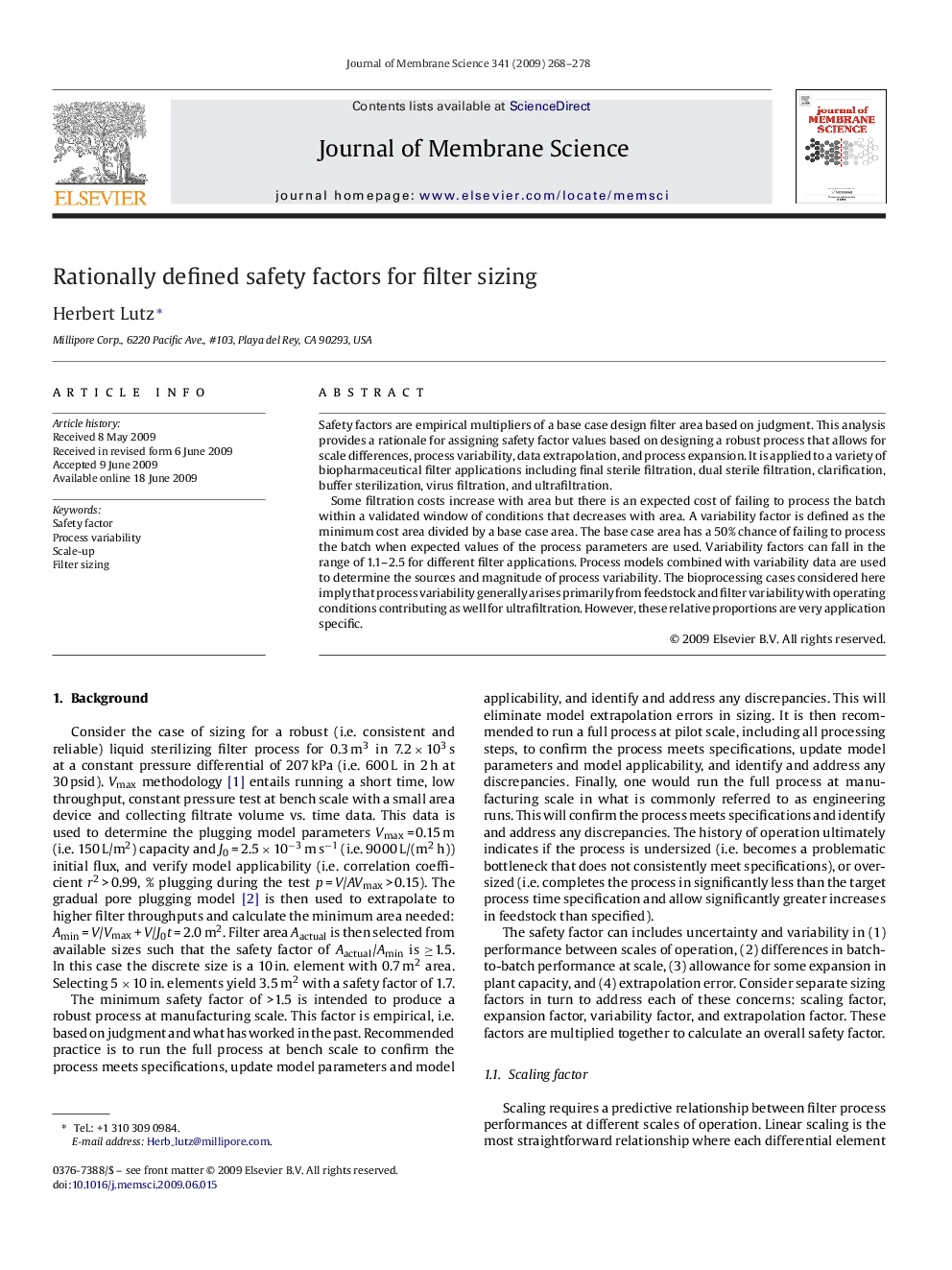| Article ID | Journal | Published Year | Pages | File Type |
|---|---|---|---|---|
| 636861 | Journal of Membrane Science | 2009 | 11 Pages |
Safety factors are empirical multipliers of a base case design filter area based on judgment. This analysis provides a rationale for assigning safety factor values based on designing a robust process that allows for scale differences, process variability, data extrapolation, and process expansion. It is applied to a variety of biopharmaceutical filter applications including final sterile filtration, dual sterile filtration, clarification, buffer sterilization, virus filtration, and ultrafiltration.Some filtration costs increase with area but there is an expected cost of failing to process the batch within a validated window of conditions that decreases with area. A variability factor is defined as the minimum cost area divided by a base case area. The base case area has a 50% chance of failing to process the batch when expected values of the process parameters are used. Variability factors can fall in the range of 1.1–2.5 for different filter applications. Process models combined with variability data are used to determine the sources and magnitude of process variability. The bioprocessing cases considered here imply that process variability generally arises primarily from feedstock and filter variability with operating conditions contributing as well for ultrafiltration. However, these relative proportions are very application specific.
